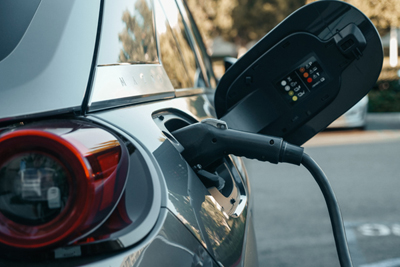Building wind and solar facilities and new transmission lines to bolster the grid will contribute to the expected higher rates.
A Coloradans’ average monthly electric bill will more than quadruple by 2050 if the state requires 80% of all car sales to be electric vehicles in the next decade, according to new research.
A 34-page report, “Colorado’s Energy Future: The High Cost of 100% Electric Vehicles,” is the third of three reports by the Independence Institute and the Center of the American Experiment on the state’s energy status. The report said if the state completes a plan by Democratic Gov. Jared Polis to convert to 100% renewable electricity, all-electric residential space heating and light-duty transportation, Coloradans will pay $695.3 billion through 2050.
“This would result in the typical Colorado ratepayer paying an average monthly electricity bill of $907 through 2050, up from just $180 in 2021,” the report stated.
The report suggested a transition to a “Lower Cost Decarbonization” with nuclear energy would reduce the cost to approximately $209.4 billion through 2050, an average monthly cost of $270 for Colorado residents.
The high costs for energy are related to “the need to massively and rapidly overbuild new wind and solar facilities to bolster the grid and ensure enough generation to support electric home heating and sufficient charging for vehicles,” according to the report. New transmission lines to move power and ensure reliability with large quantities of battery storage will increase costs.
The organization’s previous reports focused on the cost of Colorado reaching 100% renewable energy by 2040 and the cost of reaching 100% electric home heating. The previous research found all-renewable electricity and all-electric residential heating would cost Coloradans $620.7 billion through 2050. Another report found reaching an all-renewable energy platform with wind and solar would cost $318.8 billion through 2050, compared to the $88.4 billion required for a nuclear-focused energy source.
“Ultimately, the idea behind powering a growing state like Colorado with nothing more than weather-dependent energy and expensive batteries while reorienting how most Coloradans keep warm in the winter and travel daily is little more than an expensive pipe dream,” the latest report stated. “Even under the less costly nuclear scenario modeled here, the extensive and costly nuclear buildout required is likely little more than a theoretical exercise.”
The research highlighted California’s phasing out of gas-powered vehicles by 2035. A week later, the state asked residents to avoid charging their electric vehicles because pressure on the power grid could lead to blackouts. Eight more states plan on phasing out gas-powered vehicles by 2035, according to the report.
“With so much policy momentum in Colorado and elsewhere dead set on forcing a transition to electric vehicles, and with California’s ill-fated rollout of its gas vehicle ban as a case study of what can go wrong, it’s become critical to evaluate the costs and grid reliability impacts such a transition would incur,” the report said.












